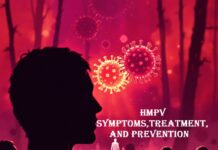Exploring Effective Addiction Treatment Methods in Austin
Austin, Texas, is home to a large number of families and People who are impacted by addiction, which is a complicated and pervasive problem. However, inside this dynamic metropolis, there is a wide variety of effective addiction treatment options that are accessible to accompany patients on their journey toward recovery. Let’s go more into six of these strategies, each of which offers a different approach and individualized help for those who are struggling with substance abuse:
Cognitive-behavioral therapy (CBT)
For those seeking treatment for addiction in Austin, cognitive-behavioral therapy is an essential component. This method, which is supported by evidence, focuses on the ideas, feelings, and behaviors that are related to substance misuse addiction.
In the process of helping people uncover negative habits, triggers, and flawed thinking that are associated with addiction, trained therapists work with People. People are given the ability to manage urges, prevent relapse, and create healthy behaviors for long-term sobriety through cognitive behavioral therapy (CBT), which seeks to challenge these tendencies and teach coping methods.
Medication-Assisted Treatment (MAT)
Comprehensive treatment, also known as medication-assisted treatment, is a method that combines counseling and behavioral therapies with drugs that the FDA has approved. Treatment for opioid addiction, alcoholism, and other chemical dependencies is particularly effective through Detox programs.
Nowadays, you can easily find clinics that offer MAT-assisted programs nearby on the internet; for example, if you live in Austin, a quick search for Austin detox or detox clinics in Austin can provide you with treatments that include Methadone, buprenorphine, and naltrexone. MAT can help alleviate withdrawal symptoms, lessen cravings, and ensure that the chemical makeup of the brain remains stable. Addiction treatment programs that incorporate counseling, support groups, and medication-assisted treatment (MAT) tend to take a more comprehensive approach to helping their patients overcome their addictions.
Dialectical Behavior Therapy (DBT)
The Dialectical Behavior Therapy (DBT) method of addiction treatment takes a comprehensive approach by emphasizing the development of skills in the areas of emotion regulation, interpersonal effectiveness, and the ability to tolerate discomfort levels.
The dialectical behavior therapy (DBT) approach tackles the intricate relationship that exists between substance addiction and co-occurring mental health issues by emphasizing acceptance-based methods and mindfulness. There is a large availability of dialectical behavior therapy (DBT) programs in Austin, which equip patients with the tools necessary to negotiate hurdles and sustain their sobriety.
Family Therapy
Not only does addiction affect the person, but it also has repercussions throughout the entire family unit. As family therapy addresses family dynamics, enhances communication, and fosters recovery within the framework of interpersonal connections, it is a crucial part of addiction treatment.
Families in Austin can manage problems, develop trust, and strengthen bonds as they collectively embark on the path to recovery through the facilitation of family therapy sessions by certified therapists. These sessions provide a supportive environment for parents and children.
Trauma-Informed Care
A considerable number of people who are struggling with addiction have been through traumatic experiences in their lives, which can have a big impact on how they use substances. The concept of trauma-informed care recognizes the significant influence that traumatic experiences have on addiction and incorporates specific interventions to promote recovery and address past traumatic experiences. Within the context of addiction treatment programs in Austin, trauma-informed treatment techniques are provided. These approaches acknowledge the significance of addressing the underlying trauma to assist in the development of sustainable recovery results.
Sober Living Environments
People who are in recovery from addiction may face substantial difficulties as they make the shift from receiving treatment for addiction to living independently. A supporting bridge between organized treatment settings and mainstream society is provided by sober living environments in the city of Austin.
As People traverse the early stages of sobriety, these sober living homes provide a secure and substance-free setting in which they can practice newly acquired skills, create healthy habits, and get ongoing support from their peers.
Conclusion
People in Austin who are battling addiction have access to a broad range of evidence-based treatment methods that can be customized to fit their unique needs and preferences. People can break free from the shackles of addiction and embark on a road toward long-term sobriety and holistic well-being if they are willing to embrace the various options that are available to them and make a commitment to their journey of recovery.
People in Austin can rewrite their stories, reclaim their lives, and thrive in a future that is infused with hope and resilience if they work together with experts who are committed to their work. These communities are supportive and tailored therapeutic approaches.
Contents




